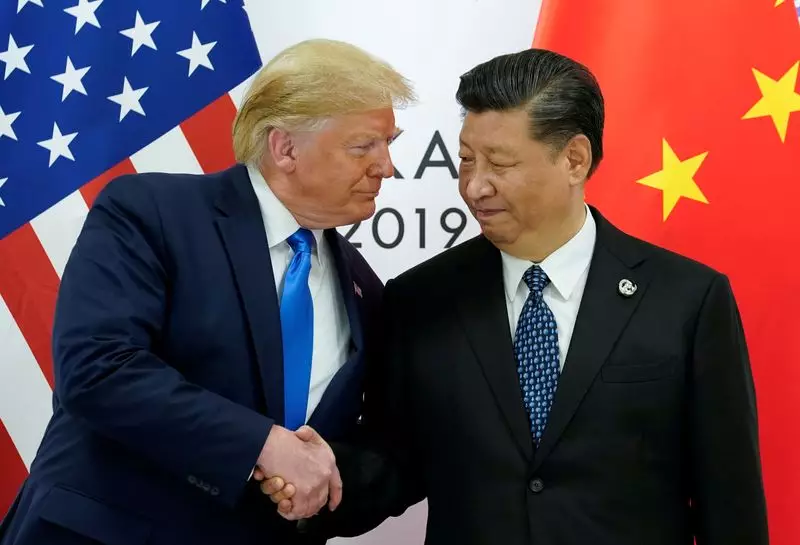The recent political developments in the United States are sending ripples across the globe, particularly impacting the historically turbulent relationship between the U.S. and China. With Donald Trump’s victory in the presidential election, both nations find themselves at a crossroads. The promise of renewed tensions brings to light the vital discussions around trade, security, and mutual respect that have defined their interactions over the past few years. The cautionary tones from leaders like China’s President Xi Jinping underscore the urgency for a delicate balance as trade policies loom in uncertainty once again.
President Xi Jinping extended his congratulations to Trump, offering an olive branch in an era marked by strife. His message emphasized the necessity for stable relations, pointing out that a cooperative approach serves the interests of both nations. Xi’s call for respect and peaceful co-existence encapsulates a pragmatic acknowledgment of the intertwined fates of the two powers. The significance of Xi’s statement cannot be understated, emphasizing that the international community is keenly observing how these two giants navigate their differences.
Trade relations, specifically, have been a focal point of contention. Xi’s appeal for increased dialogue suggests an awareness of the problematic past, where misunderstandings and aggressive policies led to a trade war that cost both nations dearly. The backdrop of these discussions, with economic ramifications that could affect global markets, emphasizes how imperative it is for both countries to broker a productive path forward, especially with looming tariffs threatening to escalate tensions once again.
Reflecting on the past, Trump’s initial presidency brought forth a slew of trade policies that disrupted the status quo. The trade war initiated in 2018 was marked by tit-for-tat tariffs that rattled economies on both ends. The difficult truce that emerged shortly before the COVID-19 pandemic illustrated the fragility of their relationship, as each nation sought to protect its economic interests amid an unprecedented global crisis. As Trump returns to office, the haunting specter of those prior contentious policies re-emerges, this time amidst a backdrop of renewed vulnerabilities within the Chinese economy characterized by poor domestic demand and substantial local government debt.
The evolving context of America’s trade policies remains a double-edged sword for China. On one hand, the Biden administration retained much of Trump’s approach, putting up protective tariffs on crucial imports ranging from solar panels to electric vehicles. These moves indicate a continuing strategy aimed at safeguarding American industries; however, they also risk exacerbating tensions with China, which may feel cornered in the broader international landscape.
Despite the tensions, there is acknowledgment from both sides that cooperation is paramount for mutual prosperity. China’s commerce ministry articulated a willingness to engage with the U.S. on healthy trade practices, a pivot towards maintaining economic interdependence. However, the looming threats of tariffs proposed by Trump, potentially reaching 60% on Chinese imports, introduce a precarious element to these relations. As the Chinese economy grapples with internal challenges, such punitive measures would worsen an already delicate situation, amplifying calls from within China for more strategic diplomatic engagement.
Moreover, the narrative surrounding U.S. policies, which the Chinese state media has criticized as fraught with misconceptions, paves the road for dialogue underpinned by pragmatism. The opportunity for a fresh start in U.S.-China relations exists; however, it heavily relies on both leaders recognizing the complexities and cultivating a relationship that counters the impulse for hostility in favor of constructive engagement.
The evolving relationship between the U.S. and China is indeed fraught with challenges, but it is essential to understand these dynamics through the lens of shared global responsibilities. Both nations hold considerable sway in international affairs, and their choices will undoubtedly have far-reaching implications. The path to a stabilizing relationship requires not only acknowledgment of historical grievances but also a commitment to dialogue and mutual respect that can redefine the framework of their interactions. As the world watches, the decisions made in the coming months will resonate deeply, influencing future diplomacy for years to come.

